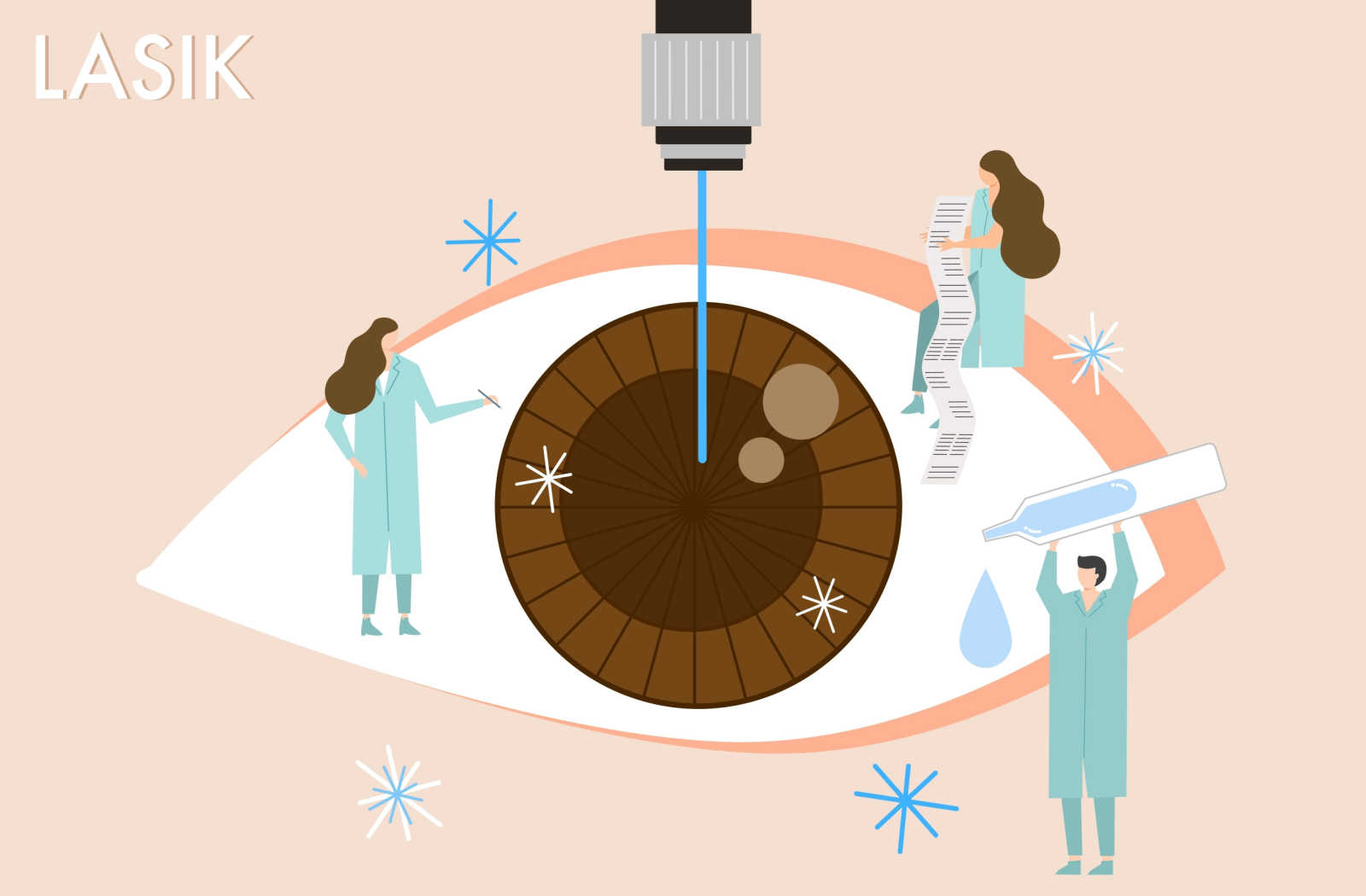Laser surgery is a procedure which can help to change or fix certain vision issues. Your optometrist will be able to recommend if your corrective visual needs could be treated by laser surgery. If you decide that laser surgery is the route that you would like to go, you will need to be awake and not put to sleep during laser eye surgery.
You optometrist can, through a comprehensive eye exam, check the health of your eyes to determine if having laser eye surgery is right for you. There are a number of eye marker health requirements that you will need to meet before you are able to undergo laser eye surgery.
Requirements for Laser Eye Surgery
In order to undergo laser eye surgery, there are certain eye health markers that you will need to have. Should you not meet these requirements, there are other options that you and your optometrist can explore. Some of the criteria is:
- Healthy corneas
- Must be over 18, being 21 and over would be ideal
- Good, overall health
- Having no serious history of eye infections
- Not having severe dry eyes
- You should not have advanced glaucoma or keratoconus
If you meet these requirements, and are a good candidate for this procedure, your optometrist can recommend where you can book to have this surgery done.
What is Laser Eye Surgery?
Laser eye surgery or LASIK – laser-assisted in situ keratomileusis, is a procedure which corrects vision conditions such as farsightedness, nearsightedness, and astigmatism. For many, this procedure could reduce or potentially eliminate the need for contact lenses or corrective lenses.
This procedure uses short pulses of ultraviolet light, which is invisible to the eye, to remove a small amount of tissue from the cornea. Doing this removes a thin layer of the cornea and corrects the curvature of the cornea. The amount that is removed is usually less than the thickness of a human hair. Changing the curvature and removing some of the tissue from the cornea, your eye will be able to see images clearer because the retina will have better focus.
The surgery itself takes only a few minutes but there is often a lot of follow up needed afterwards to ensure that the eye is healing properly. Your eye, after the surgery, might feel gritty, watery, or itchy but this happens to many. You may receive medicated eye drops after the surgery to help with the pain which numbs the eye and area. This typically lasts for several hours after the surgery. For many, you may be recommended to wear a night shield over your eyes to help with the healing process.
What Conditions Can Laser Eye Surgery Help?
Laser surgery helps to correct or reduce vision issues due to refractive errors. Most people who experience:
- Myopia – nearsightedness
- Hyperopia – farsightedness
- Astigmatism
These are usually the conditions which laser eye surgery will treat as it will reduce the need for eye glasses or contact lenses, or completely eliminate the need for them.

Are There Risks with Laser Eye Surgery?
WIth any procedure or surgery, there are always some risks that can be associated with the overall procedure. Laser eye surgery is no exception, but for many situations, the benefits can outweigh the risk.
Laser eye surgery risks can deal with complications related to the corneal flap. Risks can include:
- Infection of the eye
- Flap dislocation of the cornea
- Corneal ectasia – bulging or thinning of the cornea. This is a very rare complication
- Striae – vertical lines in the eye that can cause pressure when the membrane dislodges
- Epithelial growth – happens when there is irregular growth underneath the flap. This can result in an inflammatory response or melting of the flap
Some of the other risks can include:
- Eye pain or discomfort
- Blurry, foggy, or hazy vision
- Glare
- Scratchy eye
- Starbursts around lights or halos around lights
- Small red or pink patches that appear in the whites of the eye. These go over away time
- Sensitivity to light
How will I Know If Laser Surgery is Right For Me?
Depending on the condition of your vision and your overall health, laser eye surgery could be right for you. While this is not a decision to take on lightly, your optometrist will be able to guide you through the procedure and steps needed before you decide.
The optometrist at Calgary Optometry Centre is here to guide you on your journey. They can assess your condition and help you make the right decision for your individual needs so that you will have the best outcome.
Next Steps For Your Eye Health
Your optometrist is able to guide you through any questions or concerns that you might have when it comes to laser eye surgery. Book your appointment today for your consultation or to address any questions that you may have about laser eye surgery or your overall eye health. The optometrist at Calgary Optometry Centre is here to guide you.




